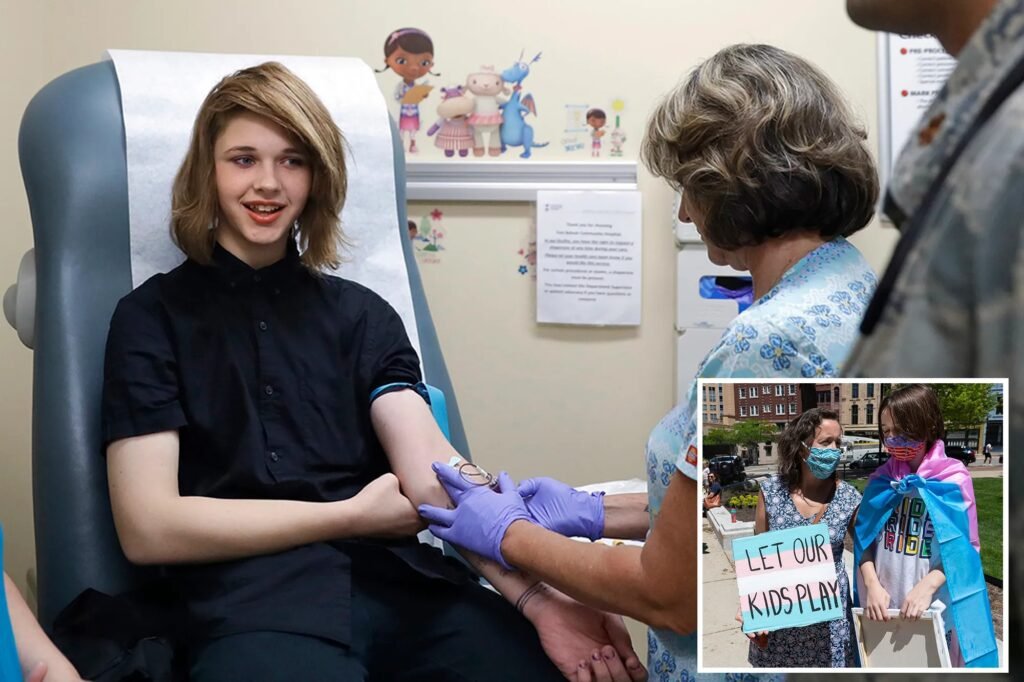Understanding Gender Affirming Care

Gender affirming care for minors comprises a comprehensive approach that addresses the diverse medical, psychological, and social needs of transgender and non-binary youth. This type of healthcare is essential for supporting individuals in aligning their physical bodies with their gender identities. The objective of gender affirming care is to promote well-being and healthy development by offering resources tailored to each person’s unique journey.
At its core, gender affirming care encompasses several key components. Medical aspects often involve puberty blockers, hormone therapy, and, in certain cases, surgical interventions. Puberty blockers can delay the onset of secondary sexual characteristics, providing time for minors to explore their gender identity and make informed decisions about their bodies. Hormone therapy, which may be employed during late adolescence, helps facilitate a more congruent physical experience aligned with one’s identified gender. Surgical options are typically considered later, with thorough evaluation and counseling ensuring that the decision is made thoughtfully, when appropriate.
Beyond medical interventions, psychological support plays a critical role in gender affirming care. Mental health professionals provide counseling and therapy services, addressing issues such as anxiety, depression, and social areas that may arise due to gender dysphoria or societal stigma. These supportive services empower youth to navigate their gender identities in a healthy, affirming space, fostering resilience and coping strategies.
Social aspects of gender affirming care involve creating an environment that supports and validates a minor’s gender identity. This can include advocacy for the use of proper pronouns, appropriate changes to school records, and the establishment of supportive peer networks. Informed consent is a pivotal element throughout this entire process, ensuring that both the minor and their guardians are involved in decision-making. Parental involvement, while essential, should respect the minor’s autonomy and understanding, promoting a collaborative framework for gender affirming care.
Political Implications and Public Perception

The political landscape surrounding gender affirming care for minors has become increasingly contentious, particularly as Democrats advocate for policies that support this form of healthcare. This embrace of gender affirming care reflects the party’s broader progressive stance but has also ignited a complex dialogue about the implications of such decisions on public sentiment and intra-party cohesion. With increasing visibility of transgender issues, the Democratic Party finds itself at a crossroads, attempting to balance the rights and healthcare needs of minors with the concerns raised by various voter bases.
As legislation around gender affirming care gains momentum, public opinion has inevitably shifted. Polls indicate a growing acceptance among younger demographics, while older adults often express skepticism or outright opposition. This generational divide fuels a broader narrative that has led to a perception of the Democratic Party as increasingly aligned with progressive ideologies that some constituents view as radical. The adoption of policies supporting gender affirming care for youth may serve to alienate certain sections of the electorate, particularly those who prioritize traditional values and express apprehension regarding the perceived ‘medicalization’ of childhood. This dynamic can contribute to an environment of mistrust, leading some voters to question the party’s alignment with their values.
The backlash against these progressive moves cannot be understated. Critics argue that endorsing gender affirming care for minors is a betrayal of parental rights and could potentially lead to long-term negative consequences for children. Thus, the ongoing debate generates confusion, causing some voters to feel disillusioned with Democrats, who they may believe no longer represent their views. Consequently, navigating the discussions around gender affirming care for minors will be pivotal not only for policy outcomes but also for the future of the Democratic Party as they strive to maintain a cohesive identity in a politically charged atmosphere.
Consequences of Gender Affirming Care Decisions

The decisions surrounding gender affirming care for minors carry significant consequences that can affect their mental health, societal integration, and personal identity. It is crucial to consider both the potential benefits and the harmful repercussions that may arise from various approaches to treatment. Supporters of gender affirming care argue that such interventions can lead to improved mental health outcomes, as many children and youth report feeling validated and accepted in their gender identities. Access to gender affirming care often allows minors to express themselves authentically, reducing feelings of depression and anxiety often experienced by transgender and non-binary youth.
Through affirmative interventions, minors may experience positive shifts in self-esteem, relationships, and overall life satisfaction. Reports from those who have successfully navigated this journey often emphasize an enhanced sense of belonging and community. For some, the support received from healthcare providers and family members has created a safe environment that fosters personal growth and resilience, ultimately contributing to their well-being.
However, the potential negative consequences of gender affirming care decisions must also be addressed. Some individuals may experience feelings of abandonment or trauma, particularly if their needs are not adequately met or if supportive systems fail. This can lead to complications such as social stigmatization, discrimination, or internal conflict regarding their identity. It is essential to acknowledge the stories of those who have encountered these challenges, as their experiences highlight the complexity of transitioning and the ongoing struggle for acceptance and understanding in society.
Ultimately, the impact of gender affirming care for minors is multifaceted, and care must be taken to navigate these complex decisions. Both the positive and negative outcomes contribute to the broader discussion about how society approaches gender identity and the importance of supportive interventions for youth navigating these transitions. In conclusion, understanding these consequences is vital for informed decision-making by families, policymakers, and healthcare providers alike.
The Future of Gender Affirming Care and Political Accountability

The landscape of gender affirming care for minors is increasingly shaped by political discourse, highlighting the need for accountability among policymakers. As discussions surrounding healthcare for youth evolve, it is imperative that political leaders prioritize the well-being of affected individuals, ensuring that the provision of gender affirming care remains compassionate and evidence-based. This care is vital for the mental and emotional health of transgender and non-binary youth, who often face significant challenges, including discrimination and lack of access to appropriate medical services.
Political debates have stirred public opinion and influence legislative measures that can either support or hinder access to necessary treatments. Consequently, advocating for the rights of minors seeking gender affirming care must involve not only healthcare professionals but also the affected youth and their families. There must be a conscious effort to make their voices heard in the legislative process, allowing them to share personal experiences that underline the necessity for supportive policies. Engaging with youth through forums or consultations can foster a sense of belonging and validate their experiences, creating a more inclusive dialogue around gender affirming care.
Importantly, political accountability goes hand in hand with a commitment to maintaining standards of care that align with medical guidelines and best practices. It is crucial for lawmakers to collaborate with healthcare providers to develop policies that are not only equitable but also scientifically informed. By prioritizing the needs of transgender youth and instituting checks and balances within legislative actions, a healthier, more supportive environment can be established. This forward-looking approach will ultimately help to mitigate the stigma surrounding gender affirming care for minors while reinforcing the importance of compassionate policymaking.


Leave a Reply